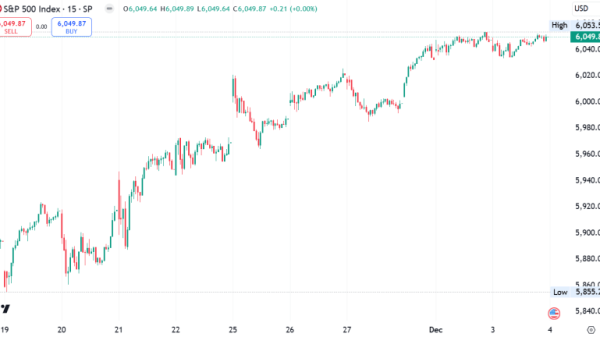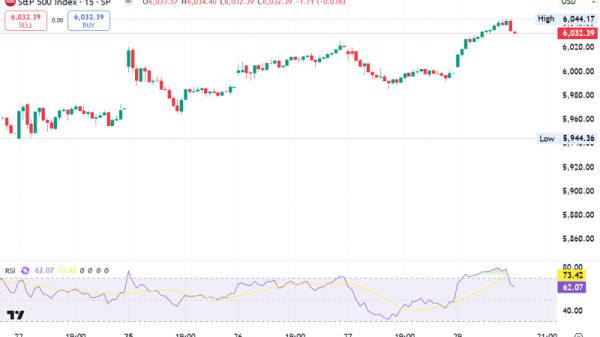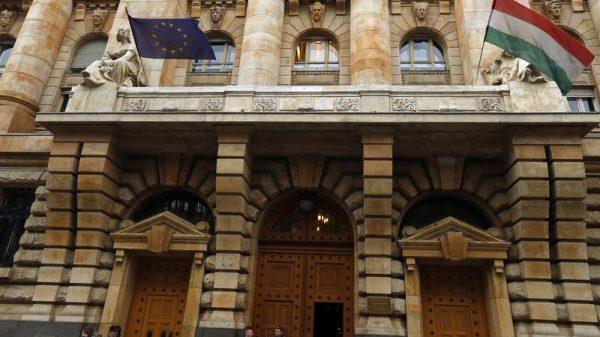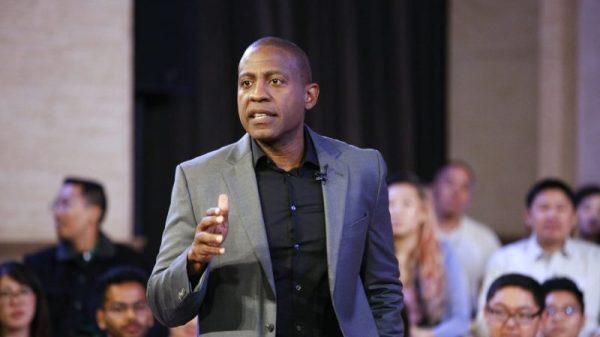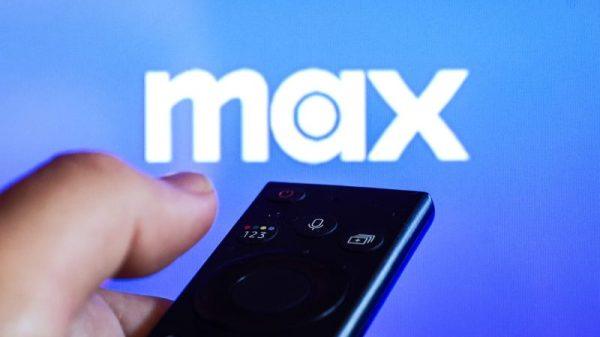Vice-presidential debates rarely matter much in presidential campaigns and Tuesday’s clash between Democrat Tim Walz and Republican JD Vance may matter less than ever — not because of what was said or not said, but because events have suddenly interceded in ways that could affect the election in its closing weeks much more than what happened onstage in New York.
Iran’s ballistic missile attack against Israel, which came just hours before Tuesday night’s CBS News debate, represented a dramatic and dangerous escalation of a Middle East conflict that has now raged for nearly a year. Further escalation is likely as the Israelis prepare a response and as President Joe Biden and Vice President Kamala Harris weigh their options as they stand with Israel.
Biden and Harris also are consumed with the federal response to the deaths and destruction caused by Hurricane Helene, a storm that has killed at least 137 people and has left towns and communities in the South crippled as they deal with wrenching devastation. The storm’s widespread damage forced Harris to abandon the campaign trail and return to the White House Monday.
Added to that, dockworkers along the East Coast and the Gulf of Mexico went on strike Tuesday, after efforts by Biden and his administration failed to prevent the walkout. The strike brought immediate interruption to shipping and could threaten the economy if longshoremen stay out for an extended period. Biden and Harris will be under pressure to bring the strike to an early end, but they risk a rift with organized labor in the process.
Tuesday’s debate between Walz, the Minnesota governor, and Vance, a senator from Ohio, was perhaps the last major event on the political calendar before Election Day on Nov. 5. That it was overshadowed by events was indisputable, but it was also reshaped by those events, as the two vice-presidential nominees traded charges about the policies and competence of their respective leaders to deal with a world in turmoil.
Overall, the debate was generally civil and certainly more substantive than last month’s debate between Harris and former president Donald Trump. Vance and Walz seemed to go out of their way to suggest areas of common ground. But that was only on the surface. Beneath the polite tone, the two followed the script of their campaigns on issues ranging from the economy, immigration and health care to child care, gun violence and climate change.
Walz repeatedly attacked Trump as unfit to lead, for engineering the end to a constitution right to abortion through his Supreme Court nominations and favoring the wealthy with his economic policies. Meanwhile, Vance defended Trump’s record as president, saying he had brought stability to the world, while repeatedly calling out Harris on inflation and immigration.
Vance appeared intent on using the debate to try to refurbish his image after an introductory period that has left him with low favorablilty ratings. For example, he talked about the need for the Republican Party to do a better job on the issue of abortion in ways that Trump never does. He also showed that he is a practiced, polished debater, while Walz at times showed nervousness and appeared unsteady.
Both had bad moments. Walz stumbled on why he had said earlier in his career that he had been in China during the deadly crackdown on the Tiananmen Square democracy protests when that was not true, never directly answering or acknowledging his mistake. Vance’s worst moment came at the end of the debate when, in a discussion about threats to democracy, Walz asked him directly, “Did he [Trump] lose the 2020 election?” Vance lamely responded: “Tim, I’m focused on the future.”
Given fast-moving events, short memories and even shorter attention spans, it’s possible that none of the events that came together on Tuesday will have a material effect on the election. Few events have, other than Biden’s decision to end his candidacy and Harris’s emergence as the Democratic nominee. Trump’s conviction in the hush money and business fraud case did not change things. Nor have Trump’s repeated lies about the 2020 election, grievances or personal attacks. But in a race that is extremely close in the seven battleground states and nationally, any small changes can become significant.
Chaos and instability are the last things an incumbent administration welcomes in the closing weeks of a presidential campaign, but that is what these events have suddenly created for Harris, who in Biden’s absence is running as a quasi incumbent. The power of incumbency brings many benefits in politics, but at moments like this, incumbency also brings responsibility and difficult choices. Harris could be judged by how well the administration responds to these multiple challenges and how skillfully she navigates the internal politics within her own party.
Trump moved swiftly to exploit events to his own advantage, charging Biden and Harris with empowering Iran and claiming without any evidence that if he had been in office, the Hamas attack on Israel last Oct. 7 would never have happened. On the dock strike, Trump claimed the demand for higher wages was the result of inflation generated by the Biden administration’s spending programs. But he also supported the workers’ right to negotiate for higher wages because those negotiations were with shipping companies “that are mostly foreign flag vessels.”
The dock strike is another test of Biden’s loyalty to organized labor. He marched a picket line with striking autoworkers earlier this year and that fealty has paid some dividends, particularly among the union’s leadership. He’s likely to give striking dockworkers full support as well, but the risk of an extended strike disrupting the economy, the risk of prices rising ahead of the election, could be politically costly as well.
In a world of complexities and often difficult choices, Trump and his team long have sought to frame the election simply as strength versus weakness. Harris, who is still not fully known by many voters, and who needs to persuade them that she is ready to be commander in chief, could find herself viewed even more through this lens because of what is happening in the Middle East.
But Trump’s own record of erratic leadership, his denigration of U.S. allies and alliances, his coziness with Russian President Vladimir Putin and admiration for other foreign strongmen — and the fact that many of his former national security advisers have described him as unfit for the presidency, raise issues in the final weeks that could put him on the defensive as well.
The Middle East presents the most difficult choices for Biden and Harris, if only because of the danger that the conflict will steadily widen into a regional war that many have feared, and that Biden has sought to avoid. Biden has steadfastly supported Israel in its war against Hamas, while pleading for a cease-fire that Israeli Prime Minister Benjamin Netanyahu has resisted.
Netanyahu has repeatedly turned his back on the advice of Israel’s most important ally — and weapons supplier. As both Biden and Harris have called for a cease-fire, Netanyahu has continued to plunge ahead prosecuting the war. Biden had warned Israel not to launch the kind of attacks in Lebanon that triggered the Iranian attacks of Tuesday, one more sign that the administration has had little influence with the embattled Israeli leader.
Yet Biden’s support for Israel has produced a backlash among pro-Palestinian supporters in the United States, who have decried Israel’s war in Gaza as genocide and seen the president as complicit. The reaction has strained the Democratic coalition and has caused Harris to try to create a sliver of daylight between her and the president. She has consistently spoken with more empathy and passion about the suffering of the Palestinian people in an effort to bridge those divisions.
Now, with Israel under attack and preparing what could be a vigorous response, she and Biden will likely be shoulder-to-shoulder in their support of Israel’s right to self-defense. When Harris spoke publicly on Tuesday, she was focused on Israel’s defense, saying the U.S. support for Israel is “unwavering,” and on protection of U.S. forces in the region, not on the suffering of civilians in Gaza or Lebanon.
Next Tuesday will mark the first anniversary of the Hamas attack that killed about 1,200 and took more than 200 hostages. With the Iranian attacks of Tuesday and the Israeli response, when it comes, the Middle East conflict, along with the war between Russia and Ukraine, remains part of an unresolved foreign policy legacy of the administration.
The new domestic challenges present other problems for Harris and Biden. Political leaders have learned at their own expense the consequences of botching the response to natural disasters. President George W. Bush saw his approval ratings plunge in 2005 when he was slow to respond to Hurricane Katrina and they never recovered.
Hurricane Helene inflicted worse damage than anyone had expected, and the worst of it was far inland from where the storm made landfall along the Florida coast. Harris campaigned through the weekend as the damage reports mounted and the human toll became more apparent. It was not until Monday, however, that she broke away from campaigning and got back to Washington.
Voters will quickly move on from the Vance-Walz debate, but the events of recent days, and especially conflict in the Middle East, are likely to remain in their minds as they make their choice for president.

